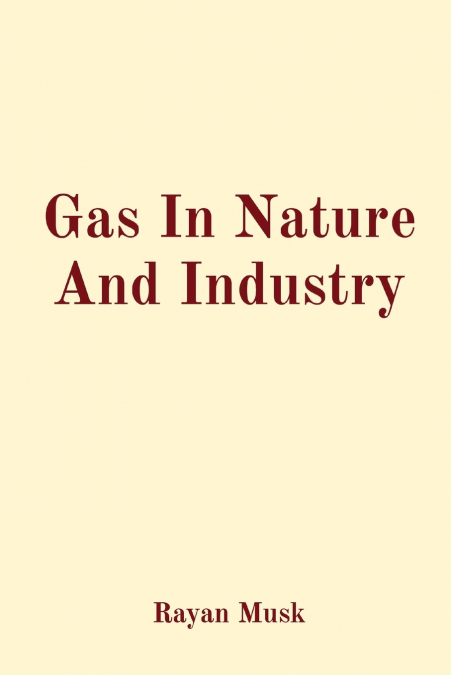
Rayan Musk
Gas, both in its regular state and as a fundamental part of different modern cycles, assumes a multi-layered part in the domains of nature and industry. In nature, gases are unavoidable, containing a huge piece of Earth’s environment. The essential gaseous petrols incorporate nitrogen, oxygen, and argon, comprising most of the air, while follow gases like carbon dioxide, methane, and water fume add to the sensitive equilibrium that supports life on our planet. In the regular world, gases are major to processes like photosynthesis, breath, and the water cycle. Plants use carbon dioxide and daylight to create oxygen through photosynthesis, a pivotal system that upholds life by producing the breathable air we rely upon. In the mean time, creatures, including people, participate in breath, a cycle that consumes oxygen and deliveries carbon dioxide. The water cycle includes the change of water between its fluid, gas (water fume), and strong (ice) states, driven by the sun’s energy and air conditions. In the modern scene, gases take on an alternate yet similarly essential job. Modern cycles frequently depend on gases for assembling, energy creation, and different synthetic responses. For example, hydrogen fills in as a feedstock for the development of smelling salts, a critical part in composts. Gaseous petrol, a combination principally made out of methane, is a flexible energy source utilized for power age, warming, and as a natural substance in the development of synthetic compounds and plastics. Carbon dioxide, frequently connected with natural worries, likewise assumes a significant part in different modern applications. For instance, carbon dioxide is utilized in the food and refreshment industry for carbonation, as well as in processes like dry ice creation and cooling applications. Moreover, carbon catch and capacity advancements mean to alleviate the effect of modern emanations on the climate by catching carbon dioxide before it is delivered into the environment. Gases are indispensable to the idea of cryogenics, which includes the investigation of very low temperatures. In businesses, for example, medical care, cryogenic gases like fluid nitrogen track down applications in protecting natural examples, freezing and moving clinical items, and supporting operations. Besides, gases like oxygen and acetylene are fundamental for welding and cutting cycles, adding to development, creation, and fix exercises across different ventures. While gases are characteristic for the normal request of our planet, their essential usage in industry drives mechanical advancement and financial turn of events. The sensitive harmony between the regular job of gases in supporting life and their groundbreaking applications in industry highlights the significance of understanding and mindfully dealing with these fundamental components as we continued looking for feasible turn of events.